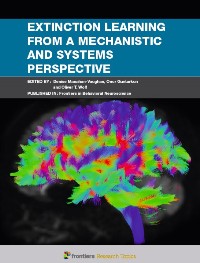DFG Research Unit 1581
Treasure Founding of FOR1581
We believe in the bottom-up development of creativity in science. Therefore our young researchers from the PhD- to the PI-level are promoted with an infrastructure to develop own cooperation's and research plans. We believe three aspects to be critical key factors developing an own research profile: giving opportunities to take over own responsibility, chances to develope own networks, while assistating whenever requested at central issues with an individual mentoring.
One important focus the training of our PhD-students. They are invited to develop their skills in special trainings in the IfB, the administrative body for internal training and counseling. These trainings facilitate the implementation of research-oriented equal opportunity standards, but parallel correspond with the individual needs of our Young Scientists for overall career development tipps. Additionally, the ScienceCareerNet Ruhr, the inter-university career development program for young scientists of the UA Ruhr, offers them a wide range of support, from mentoring programs up to seasonal academies.
On the scientific side the International Graduate School of Neuroscience, IGSN, offers a special guidance. The IGSN is an independent pillar, firmly established under the umbrella of the Research Department of Neuroscience, RDN, for a structured internationally renowned interdisciplinary neuroscience doctoral programme. The IGSN was founded in 2001 and is a well-established central "open Faculty" of neuroscience with its own promotional rights for a "PhD in Neuroscience".
An example how we foster the independent development of our young researchers is the DFG-dupported idea of an "exploratory treasure chest": a funding for which only graduate students and postdocs can apply to run their own develeoped pilot experiments:
| Young Scientist | Issue |
|---|---|
| Markus Thürling, P8 | Pilot studies about TDCS and 3T fMRT I (03/12) |
| Joswin Kattoor, P7 | Pilot study to identify neural substrates of extinction and reinstatement (05/12) |
| Katharina Bösche, P3 | Reconsolidation of the condition immunresponse after subtherapeutical CsA-dosis: rejection of a transplant (08/12) |
| Sarah Starosta, P1 | Influence of attention on the context-specifity of aquisition and extinction learning (11/12) |
| Sara Lucke, P4 | Lab rotation (01/13) |
| Adriane Icenhour, P7 | Sex differences in the renewal effect in the context of aversive visceral conditioning (02/13) |
| Markus Thürling, P8 | Extension studies about TDCS and 3T fMRT II (02/13) |
| Kathrin Orlowski, P3 | Effects of Tetrodotoxin in the conditional taste aversion paradigm (05/13) |
| Sara Lucke, P4 | Reversing the effects of evaluative acquisition learning: Establishing a picture-word paradigm (07/13) |
| Tanja Hamacher-Dang, P5 | Combined effects of pre- and post-extinction stress on the renewal effect (09/13) |
| Marion André, P2 | Exploration of context-dependent extinction learning in mice (10/13) |
| Sara Lucke, P4 | Pilot studies to establish a picture-word paradigm (05/15) |
| Thomas Ernst, P8 | Cerebellärer Einfluss auf Akquise und Extinktion klassisch konditionierter Furchtreaktionen – eine fMRT-Pilotstudie bei 7 T (10/15) |
| Anne Golisch, P6 | Boundaries and requirements of the renewal effect (12/15) |






 Don't forget...
Don't forget...
